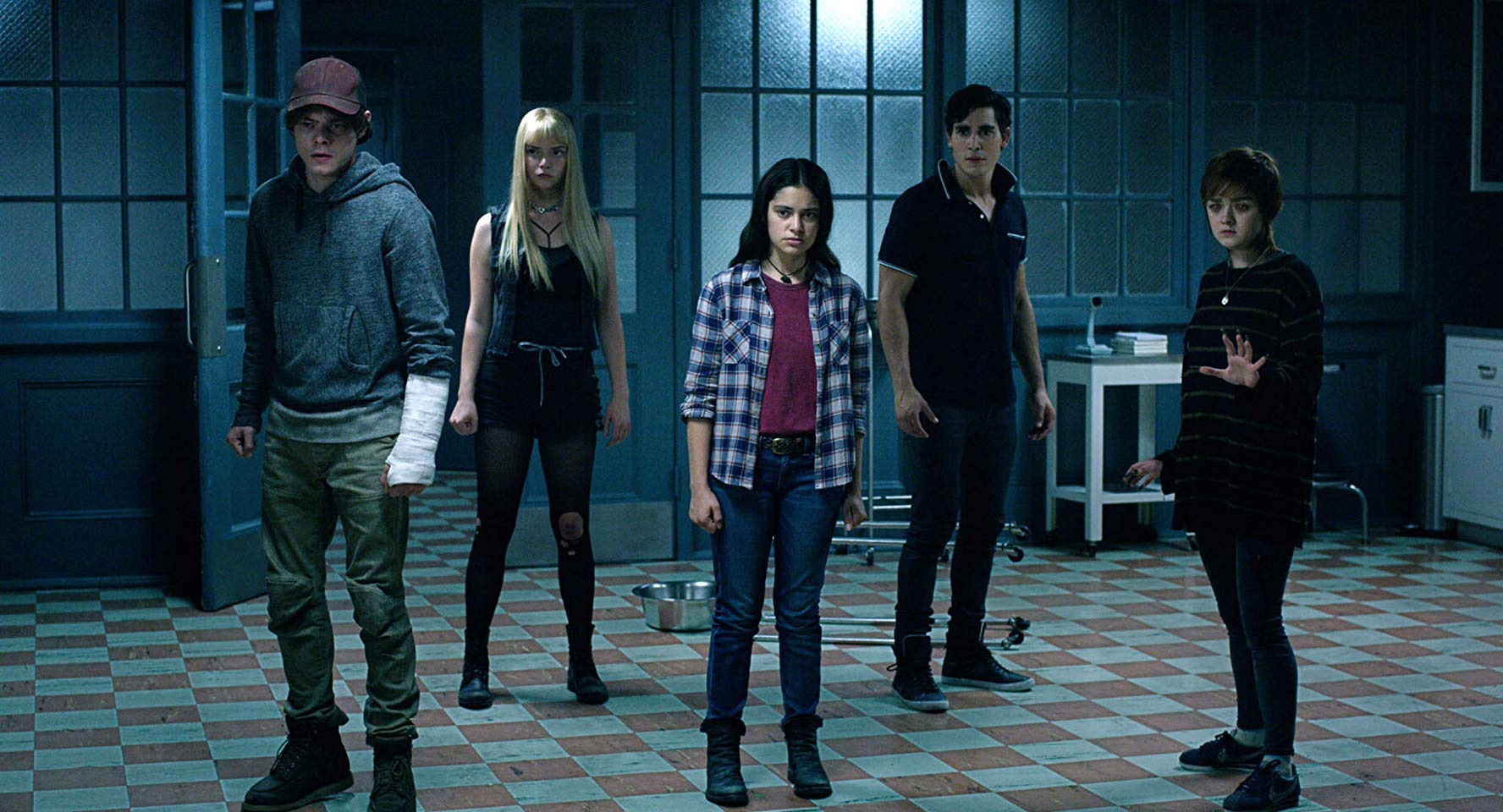 ★★★½
★★★½
“The end of an era”
We live in a strange world in which Wonder Woman ’84 gets delayed again while The New Mutants is suddenly getting its release. Over the years, the story surrounding this movie has become more interesting than the one it tells. Originally, the film was scheduled for 2018 but didn’t find much luck. Director Josh Boone (The Fate in Our Stars) had the interesting idea of doing a Breakfast Club-type movie set in the Horror genre. After initial enthusiasm from the studio, execs pulled back, wanting to make the film more accessible, less horrific. Than the studio head at 20th Century Fox left, which led to changes at the script.
Originally, the film was supposed to play in the 80s (after X-Men: Apocalypse) and would have included Professor X and Storm. The script at hand seemed to depict the caretakers of the New Mutants in a very negative way. This is apparent when you see the character of Dr. Reyes (Alice Braga), the replacement for Storm. As the original X-men characters were always the heroes of the franchise, their appearances were skipped. But the success of the first part of Stephen King adaptation It (2017), led to a rethink, that the film should not abandon its scarier elements. The next thing to happen was the acquisition of 20th Century Fox studio by Disney (is there anything the House of Mouse doesn’t already own?) which meant that Dark Phoenix as well as The New Mutants were now Disney’s to deal with.
And obviously Disney didn’t care too much for Fox’s leftovers. Dark Phoenix went into cinemas last year with little fanfare, remaking a storyline that had already been told (and according to many, much better) in X-Men: The Last Stand (2006). The remake was a box-office failure – and this time the often overly negative criticism of fans, which I usually explain as Marvel fans who can’t stand that there is any competition for their beloved Disney films, might have been justified. I don’t know, because even I didn’t bother to watch the movie – and the X-Men movies were my entry into the Marvel universe. Why pay again to watch a story I saw 13 years ago, and own on DVD?
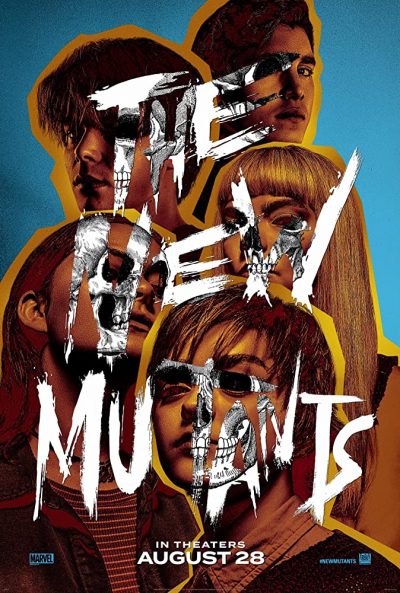 It seems to me that cinemagoers are tired of always seeing movies following the same old formula they have been watching, repeated again and again. That you can be successful by being different is proven by movies like Deadpool or Venom. The New Mutants tries to do something similar, but unfortunately, the caravan has moved on. After It and Netflix’s Stranger Things, the concept of the movie is nowhere near as original as it might have been a few years ago.
It seems to me that cinemagoers are tired of always seeing movies following the same old formula they have been watching, repeated again and again. That you can be successful by being different is proven by movies like Deadpool or Venom. The New Mutants tries to do something similar, but unfortunately, the caravan has moved on. After It and Netflix’s Stranger Things, the concept of the movie is nowhere near as original as it might have been a few years ago.
Based on Chris Claremont’s comic series from the 80s – at that time Marvel’s successful attempt to create a successful competing series to DC’s Teen Titans – New Mutants is about five misfits with the usual unusual abilities you know from the X-Men universe. Dani Moonstar (Blu Hunt) survives a catastrophe that killed her entire tribe, and wakes up in a hospital (which actually looks more like a nunnery!).
There, Dr. Reyes is trying therapy on four other mutants: Rahne Sinclair (Maisie Williams) who can turn into a were-wolf; Illyana Rasputin (Anya Taylor-Joy), Colossus’s little sister, who is able to jump in and out of the alternate dimension Limbo and can manifest a soulsword; Sam Guthrie (Charlie Heaton), who can move extremely quickly in the air and creating so extreme energy while being invulnerable in this situation; and Roberto da Costa (Henry Zaga), who can create when being excited solar energy, so he becomes actually burning hot. In the comics these characters are also known with their usual other names which are Wolfsbane, Magik, Cannonball and Sunspot but the movie never mentions these names.
Dr. Reyes intentions are to teach these young disturbed teens how to deal with their abilities and not hurt other people. It’s suggested by Reyes, they might then go to a school for gifted youngsters (hint, hint). Unfortunately, not all is as it seems and very soon the teenagers have to face their own anxieties and traumas. The evil power that killed off Dani’s people arrives at the facility and they are forced to work together to save Dani as well as defend their own lives and freedom.
Basically, this movie tries to go for a smaller scale, after a succession of X-Men movies that seemed to increase constantly in size. It’s a nice idea, and one I respect. This was even seen as the potential start of a new trilogy – although, which film nowadays isn’t? And I have to give the filmmakers this: at least they tried to do something different. That’s worth a lot in my book, considering we live in a time when Disney’s Marvel movies seem to be written and directed almost on autopilot (exception: The Avengers). Once a film series gets too big, the next logical step is to scale down. It can be a successful move: look at the James Bond movies, which seem to do so at regular intervals. However, it needs an audience that still cares. Unfortunately, I think that boat has sailed long ago for the X-Men. For most people, Logan (2017), Hugh Jackman’s final appearance in the role of Wolverine, was the last hurrah and end of the series.
There are a lot of good elements here. A darker, more sombre and psychological variation on the X-Men theme, it feels like Chris Carter’s TV series Millennium compared to his warmer, more sympathetic X-Files. This comparison is particularly appropriate, since The New Mutants was filmed in Vancouver, Canada, where the first few seasons of The X-Files were produced and here, too, the composer is Mark Snow.
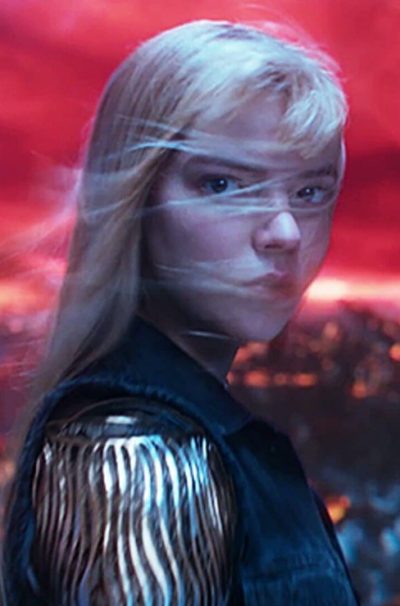 The first half of the (fortunately not-too-long) movie – I really, really hate the lengthy running time of blockbuster movies today – focuses on the five misfits, their pasts and their relationship building. The second is when the action and the CGI comes into play, though is more restrained than you may be used to in these movies. The New Mutants really feels like the intimate stage-play of X-Men films. The main inspirations, apart from those already mentioned, seem to be the psychological drama Girl, Interrupted (1999) with Winona Ryder and Angelina Jolie, as well as Buffy the Vampire Slayer – the latter is watched by the mutants a couple of times, and seems to correspond with things we see later. But, while I said that the new movie is more psychological, don’t think it’s deep, beyond “Well, I’ve got these superpowers, didn’t know how to control them, killed some people and now I’m kind of a wreck.”
The first half of the (fortunately not-too-long) movie – I really, really hate the lengthy running time of blockbuster movies today – focuses on the five misfits, their pasts and their relationship building. The second is when the action and the CGI comes into play, though is more restrained than you may be used to in these movies. The New Mutants really feels like the intimate stage-play of X-Men films. The main inspirations, apart from those already mentioned, seem to be the psychological drama Girl, Interrupted (1999) with Winona Ryder and Angelina Jolie, as well as Buffy the Vampire Slayer – the latter is watched by the mutants a couple of times, and seems to correspond with things we see later. But, while I said that the new movie is more psychological, don’t think it’s deep, beyond “Well, I’ve got these superpowers, didn’t know how to control them, killed some people and now I’m kind of a wreck.”
But still… I kind of liked that this went a different route than the usual overblown extravaganzas. Anya Taylor-Joy as Illyana Rasputin, a.k.a. “Magik”, leaves a particular impression. Though I have to wonder why those in power found it necessary to change the backstories: Rahne (Williams) and Dani seem to be moving towards a lesbian relationship while the film subtly indicates that Illyana might have created the “limbus” (her magical world) due to sexual abuse as a child. Neither of this has any basis in the comics, it’s just Josh Boone overwriting existing lore, perhaps to make the characters more “realistic”. I don’t know why people do that. Is being kidnapped by a devil-like demon and being transported in some kind of hellish dimension not terrifying enough anymore? On the other side, the story of “Magik” has hardly been touched, so the possibility of a solo film that could dive deeper into the lore of the character still exists. Though I guess, we’ll never see this at all.
I stayed until the end titles were over. For, while the movie was not the best of the series (though far from the worst), I felt a little sad realizing this was finally, officially and really the end of 20th Century Fox’s X-Men films. The first X-Men, in 2000, ushered in a new era of comic book movies and introduced me to Marvel superheroes. And while we have seen all sorts of similar films since, I always had a liking for this franchise. They tried out new things, and wanted to be different from that what Disney/Marvel did. Sometimes they succeeded, sometimes they failed – sometimes they succeeded and the result was still not that great. It’s always easy to do the safe, secure thing and laugh all the way to the bank. It’s less easy to constantly try to reinvent oneself.
Regardless of what their respective qualities or flaws were, I guess I’ll miss them.
Dir: Josh Boone
Star: Maisie Williams, Anya Taylor-Joy, Charlie Heaton, Alice Braga





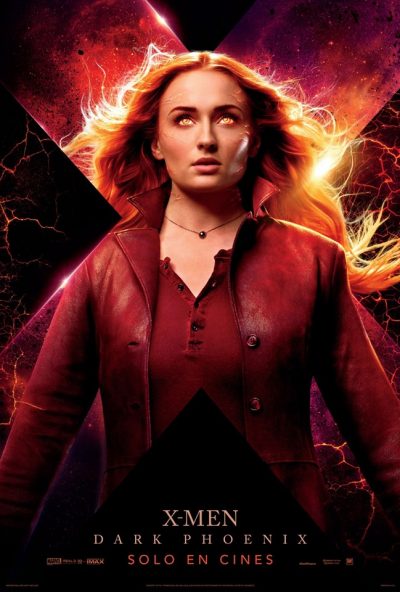 I can’t believe there have been seven X-Men movies now. I think the last I saw was the second, which came out in 2003. Since then, there seems to have been a lot of mutants under the bridge, so to speak – and, it appears, some jiggery-pokery with timelines. That’s the only way to explain the death early on in this origin story, of someone I’m
I can’t believe there have been seven X-Men movies now. I think the last I saw was the second, which came out in 2003. Since then, there seems to have been a lot of mutants under the bridge, so to speak – and, it appears, some jiggery-pokery with timelines. That’s the only way to explain the death early on in this origin story, of someone I’m  Or, perhaps: “What Blade Runner would have been like, if android Roy Batty was a good guy.” For this appears to be a mash-up of elements from that and Battle Angel Alita. While preceding the film version of the latter, it does seem to borrow elements of the manga, not least in its depiction of a future society where there is a strict, and basically vertical, division between the haves and the have-nots. After disease and pollution have pushed society to the brink, the rich and powerful live towards the top of a self-sufficient mega-city, under the control of ice queen Lady Jiru (Ishida) and her “Sodom” cyborg enforcers, leaving everyone else struggling for scraps down below. And leaving is a death sentence, due to the viruses infecting the outside world.
Or, perhaps: “What Blade Runner would have been like, if android Roy Batty was a good guy.” For this appears to be a mash-up of elements from that and Battle Angel Alita. While preceding the film version of the latter, it does seem to borrow elements of the manga, not least in its depiction of a future society where there is a strict, and basically vertical, division between the haves and the have-nots. After disease and pollution have pushed society to the brink, the rich and powerful live towards the top of a self-sufficient mega-city, under the control of ice queen Lady Jiru (Ishida) and her “Sodom” cyborg enforcers, leaving everyone else struggling for scraps down below. And leaving is a death sentence, due to the viruses infecting the outside world.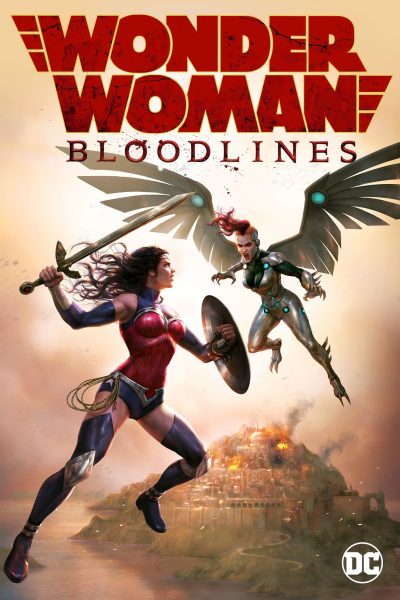 Having enjoyed the previous
Having enjoyed the previous  Or, to give this its full, rather misguided name: Birds of Prey (and the Fantabulous Emancipation of One Harley Quinn). I am not convinced that films are improved by giving them gimmick titles including made-up words. It smacks rather of desperation on the part of the makers. Though this is… alright. It did not actively annoy me in quite the same way
Or, to give this its full, rather misguided name: Birds of Prey (and the Fantabulous Emancipation of One Harley Quinn). I am not convinced that films are improved by giving them gimmick titles including made-up words. It smacks rather of desperation on the part of the makers. Though this is… alright. It did not actively annoy me in quite the same way 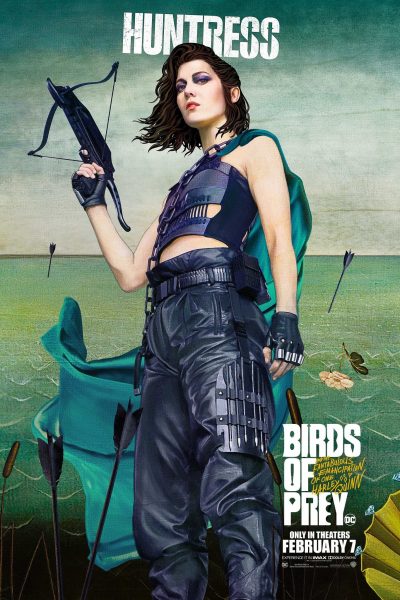 The action is a bit of a mixed bag. There are a couple of very good brawls for Harley, most notably one in a police evidence warehouse (even if the cops seem curiously unwilling to draw and use their firearms. What is this, the United Kingdom?) where Robbie and her stunt doubles get to showcase some stellar moves. But the final fight has much the same problem as the plot in general. In trying to make sure each of the four fighting leads get their chance to shine (Cassandra basically cowers in a corner for the duration of it), the climax basically succeeds in selling all of them short. There is quite a nice “funhouse” atmosphere there, since it takes place in an abandoned amusement park, though it feels like some of the potential wasn’t fully developed.
The action is a bit of a mixed bag. There are a couple of very good brawls for Harley, most notably one in a police evidence warehouse (even if the cops seem curiously unwilling to draw and use their firearms. What is this, the United Kingdom?) where Robbie and her stunt doubles get to showcase some stellar moves. But the final fight has much the same problem as the plot in general. In trying to make sure each of the four fighting leads get their chance to shine (Cassandra basically cowers in a corner for the duration of it), the climax basically succeeds in selling all of them short. There is quite a nice “funhouse” atmosphere there, since it takes place in an abandoned amusement park, though it feels like some of the potential wasn’t fully developed.























 It’s always nice when a film manages to surpass expectations. Coming in, I was thinking this was going to be nothing but a low-rent, dubbed, caped crusader flick. And, to be honest, that is exactly what it is: a low-rent dubbed, caped crusader flick. But it proved considerably more entertaining than, say, Terminator: Dark Fate, which I saw the same weekend, and which cost roughly a thousand times as much to make.
It’s always nice when a film manages to surpass expectations. Coming in, I was thinking this was going to be nothing but a low-rent, dubbed, caped crusader flick. And, to be honest, that is exactly what it is: a low-rent dubbed, caped crusader flick. But it proved considerably more entertaining than, say, Terminator: Dark Fate, which I saw the same weekend, and which cost roughly a thousand times as much to make.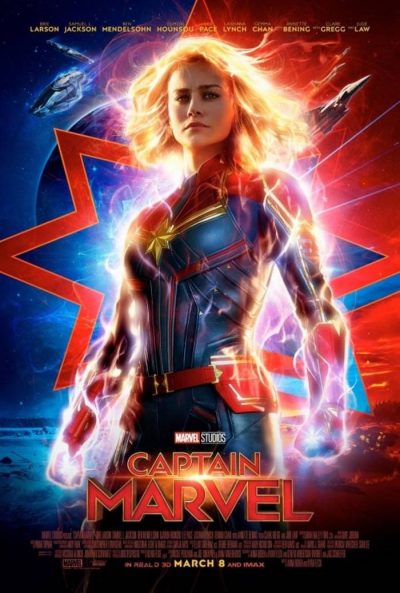 I had a couple of potential concerns going into this. Firstly, my general unfamiliarity with the Marvel Cinematic Universe. This was film #21 in their Infinity Saga. I had seen seven. Would this be like trying to follow Game of Thrones‘s penultimate episode, after having missed two-thirds of what preceded it? Secondly, Brie Larson’s press complaints about movie critics being “overwhelmingly white male.” Yep, guilty as charged, m’lord. Would this questionable attitude – that your skin colour and genital configuration matter more than what you do or say – carry over into the movie?
I had a couple of potential concerns going into this. Firstly, my general unfamiliarity with the Marvel Cinematic Universe. This was film #21 in their Infinity Saga. I had seen seven. Would this be like trying to follow Game of Thrones‘s penultimate episode, after having missed two-thirds of what preceded it? Secondly, Brie Larson’s press complaints about movie critics being “overwhelmingly white male.” Yep, guilty as charged, m’lord. Would this questionable attitude – that your skin colour and genital configuration matter more than what you do or say – carry over into the movie?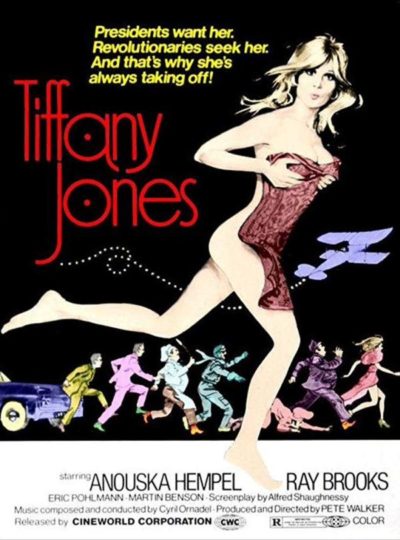 Fashion model Tiffany Jones (Hempel) finds herself dropped into the middle of international intrigue, after President Boris Jabal (Pohlmann), leader of the Eastern European state of Zirdana, takes a shine to her during a state visit to Britain. It’s supposed to be a trade negotiation, but is really to allow Jabal to broken an arms deal with some shady Americans. Her meeting the President brings her to the attention of two factions of Zirdanian rebels.
Fashion model Tiffany Jones (Hempel) finds herself dropped into the middle of international intrigue, after President Boris Jabal (Pohlmann), leader of the Eastern European state of Zirdana, takes a shine to her during a state visit to Britain. It’s supposed to be a trade negotiation, but is really to allow Jabal to broken an arms deal with some shady Americans. Her meeting the President brings her to the attention of two factions of Zirdanian rebels.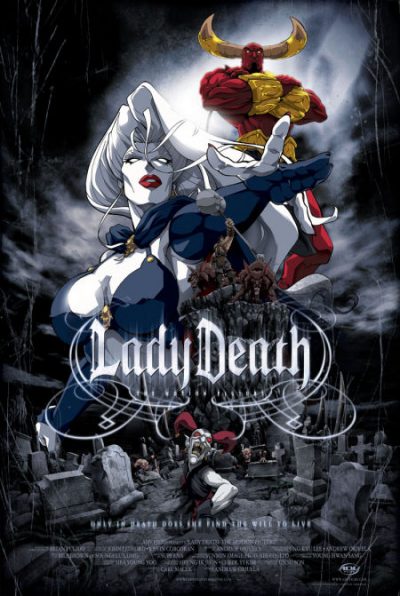 My first viewing of this was on a day off from work, when I was down with some sinusy thing, and dosed up on DayQuil. So I chalked my losing interest and drifting off to the meds, and once I felt better, decided this deserved the chance of a re-view. However, the result was still the same: even as a bright-eyed and bushy-tailed viewer, I found attention lapsing. For this animated version of a mature comic, might as well be a He-Man and the Masters of the Universe episode. Which is a shame. I wanted to like it, since the creator of Lady Death, Brian Pulido, is something of a local comics legend here in my adopted home state of Arizona. This should have been better.
My first viewing of this was on a day off from work, when I was down with some sinusy thing, and dosed up on DayQuil. So I chalked my losing interest and drifting off to the meds, and once I felt better, decided this deserved the chance of a re-view. However, the result was still the same: even as a bright-eyed and bushy-tailed viewer, I found attention lapsing. For this animated version of a mature comic, might as well be a He-Man and the Masters of the Universe episode. Which is a shame. I wanted to like it, since the creator of Lady Death, Brian Pulido, is something of a local comics legend here in my adopted home state of Arizona. This should have been better.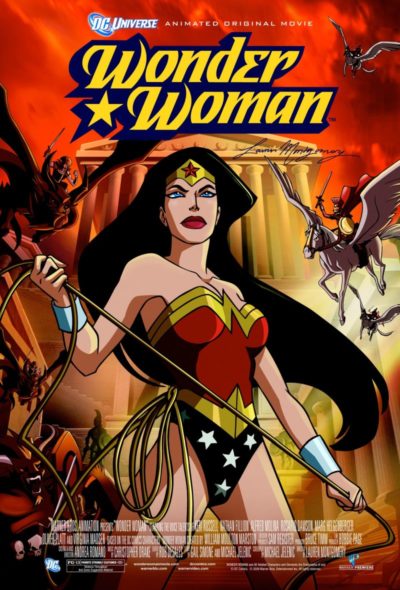 Often forgotten in the critical acclaim for the
Often forgotten in the critical acclaim for the